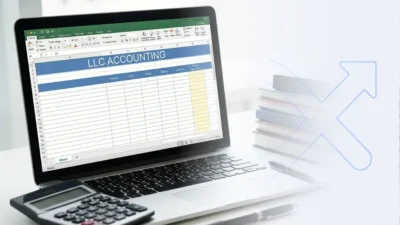
Proper tax accounting is extremely important in the process of business establishment and development. Knowledge of tax accounting regulations and legislative specifics will also help differentiate between deductible and non-deductible financial expenses from a tax perspective. Correct application of such classification is essential for any business, primarily because it supports the accurate declaration of tax liabilities. Otherwise, a company may face financial losses, either in the form of over-declared taxes or penalties and fines calculated on under-declared taxes.
In this article, we will explore the nature of deductible and non-deductible expenses from a tax perspective within the context of the Republic of Armenia’s tax legislation
Deductible and Non-Deductible Expenses from a Tax Perspective
Deductible Expenses
Deductible expenses are those that can be subtracted from your taxable income, directly reducing your corporate tax base and, consequently, the amount of tax payable. This directly contributes to optimizing your tax burden.
Non-Deductible Expenses
Non-deductible expenses are those that cannot be deducted from taxable income. Although they are recorded as expenses in your internal financial records, they are not considered tax-base-reducing factors within the tax framework. In other words, you cannot reduce your taxes based on these expenses. Examples include personal purchases made using company funds, services or goods provided to employees free of charge, and transactions carried out without proper documentation.
Maximize your tax savings!
How to Properly Deduct Expenses
Correct deduction of expenses not only helps save resources but also protects your business from tax risks. Here are the main steps:
- Separate business and personal expenses. Only expenses directly related to your business activity are deductible.
- Ensure documentary evidence. Keep cash register receipts, invoices, contracts, and bank transfer slips. Expenses without proper documentation will not be recognized as deductible.
- Maintain accounting records. Detailed registration of expenses with dates, purposes, and notes ensures transparency and accuracy.
- Follow legislative regulations and changes. Tax legislation is constantly evolving. Regularly check official websites or consult tax advisory firms to stay informed about updates.
- Consult a specialist. An experienced accountant or tax advisor can help you avoid mistakes and achieve maximum tax efficiency.
What Are the Consequences of Incorrect Accounting?
Incorrect accounting can have serious consequences, both financially and legally. The accuracy of business accounting records is fundamental, as it directly affects tax obligations, financial reporting, business stability, and credibility.
Main consequences of incorrect accounting include:
- Tax penalties and fines,
- Risk of over-taxation,
- Difficulties in attracting loans or investments,
- Unreliable business analysis,
- Solvency issues, etc.
Ensure accurate accounting and reduce tax risks with our expert support.
10 Purchases You Might Not Know How to Classify from a Tax Perspective
Deductible Purchases
Most of the deductible purchases listed below are often not used as deductions:
- Online service subscriptions. Facebook, Google, Slack, Canva, Notion, etc.—if these services are used for professional or business purposes, they can be fully included as expenses for tax deduction purposes, provided that proper documentation is available.
- Employee training expenses. Courses or educational materials purchased for your team not only enhance employee qualifications but can also significantly reduce your tax burden, provided the training aligns with the employee’s professional field.
- Postal and delivery services. FedEx, DHL, HayPost—if your business delivers or receives goods, these services can be fully included as business expenses or part of the product’s cost for tax deduction purposes.
- Insurance expenses. Employers’ health insurance payments for employees—up to 10,000 AMD per employee per income-earning month—can be deducted.
- Representation expenses. Companies can deduct representation expenses not exceeding 0.5% of the gross annual income or five million AMD.
Non-Deductible Purchases
Below are 5 non-deductible purchases that are often mistakenly included as expenses:
- Business trip expenses (exceeding the set threshold). When calculating the profit tax base, expenses for business trips exceeding 5% of gross income for international trips are not recognized as deductible. These may include per diem, lodging, transportation, and other temporary registration costs. The 5% threshold does not apply when determining the tax base for the tax year regarding state registration. Also, any portion exceeding 80% of the turnover for services performed abroad (if not specified in contracts or verified documents) is not deductible. For a detailed understanding, it is advisable to review relevant legislation and RA Government Decision No. 2335-N.
- Leased fixed assets and/or intangible assets. Lease payments for such assets are not deductible if the assets are provided to other taxpayers free of charge (or at a reduced value) for use.
- Interest expenses. Interest amounts (including those under leasing contracts) exceeding twice the central bank’s interest rate as of December 31 of the tax year are not deductible. Also, interest expenses calculated on loans from non-bank or non-credit institutions that exceed twice the taxpayer’s equity (as of the last day of the tax year) are non-deductible.
- Expenses for supporting individuals. The portion of assistance, food provision, cultural events, and similar expenses exceeding 0.25% of the gross income is not deductible. If there is no gross income during the tax year, expenses exceeding 1% of the total accrued salaries and equivalent payments for that year are not deductible.
- Penalties and fines. Penalties and fines resulting from delayed tax obligations are non-deductible. This does not apply to contractual penalties and fines.
Conclusion
An important prerequisite for successful business operation is not only effective financial management but also correct and competent tax accounting. Differentiating between deductible and non-deductible expenses is not merely a bookkeeping requirement—it is a tool that directly affects your organization’s tax burden, financial results, and legality.
In this article, we analyzed transactions and expenses whose tax classification is often overlooked or misinterpreted. Proper differentiation and application in practice allow avoidance of unnecessary tax payments, prevent penalties and fines, and ensure the stable development of the business.
Therefore, always monitor legislative changes, ensure transparent documentation, and consult experienced professionals whenever possible. This way, you can not only reduce your taxes legally but also enhance your business’s financial reliability and investment appeal.
Attention: This article is intended solely for general informational purposes and is based on the provisions of the RA tax legislation effective as of July 3, 2025. It does not include changes made or planned after that date and does not constitute comprehensive legal or tax advice.
Considering the frequently changing nature of tax legislation, please consult a specialist before making tax or financial decisions. For additional clarifications and consultation, you can contact our team.





